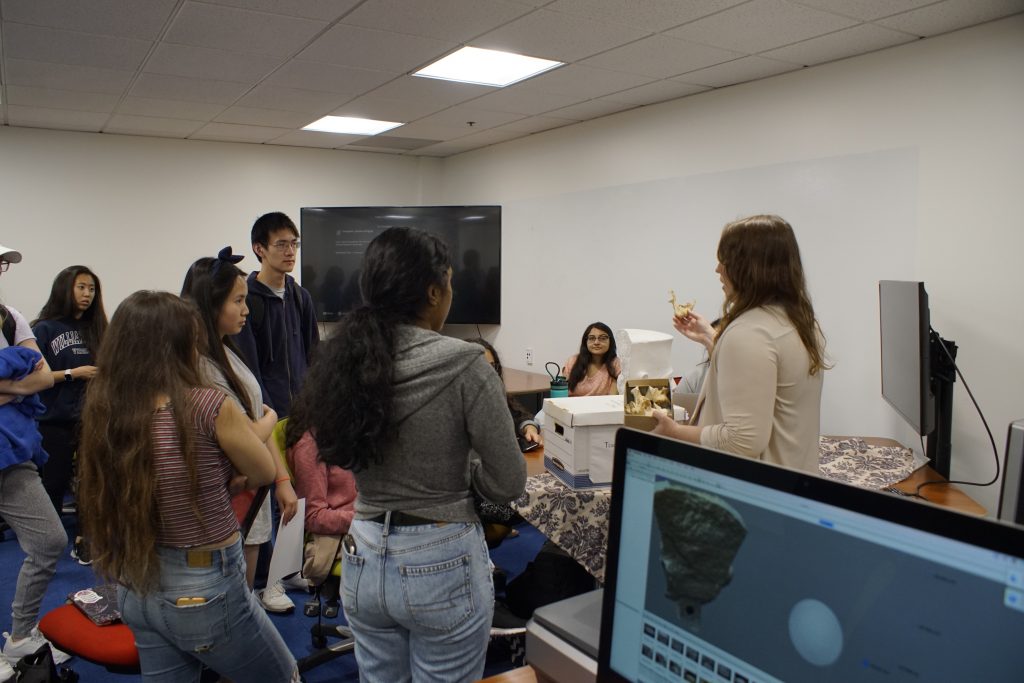
I see my role as a teacher more as a facilitator rather than an instructor. I view my students from a growth mindset, recognizing all students have the capacity to learn with the expectation that failure and/or struggle is an inevitable but necessary part of education. I push my students to recognize how their personal lives affect how material is processed and interpreted and that this can be both a strength and a weakness of scholarship, generally.
In the classroom, I work to create a brave space in which students feel welcome to share their opinions even when being confronted with controversial materials. I do this in several ways: 1) I try to incorporate diverse assignments, including videos, podcasts, theoretical literature, academic readings, news articles, and self-reflections or reading journals, as a way of engaging all students by demonstrating how the topics covered in class are relevant to their lives. 2) I limit lecturing to reviewing difficult topics with which the students seem to have struggled from the homework, as reflected in their reading journals or in-class discussion. Class, instead, is spent discussing the material assigned and the students’ reactions to it, with a central focus on connecting each discussion with those which came before. 3) I make myself available to my students’ concerns and am honest with them about my own life and my experiences. For example, I will share stories from my life both to illustrate how the material might be relevant to our lives and for comedic relief during tough conversations. I also encourage students every class to come to office hours, explain why student evaluations are important, and I emphasize that I view both my role and their role as the same in the classroom: both as teachers and students.
I prefer to design classes which rely on student-motivated learning, seeing my role in these classes as providing the necessary language and resources to conduct their research. I also find it very important to model such assignments focused on student-led research so that they are comfortable taking on such a role. I try to collaborate with local resources to make my assignments as interdisciplinary as possible, to help expose students to the resources they have access to. For example, I developed a course in Spring 2019 that used ancient Egypt as a case study for exploring how researcher bias effects analysis. In this class, I was awarded a grant from the Center for the Advancement of Teaching to buy recording devices that my students might develop an audio-essay, or podcast, for their final assignments. I got the Library Special Collections, HumTech, graduate students and faculty from the Near Eastern Languages and Cultures department at UCLA, and the Digital Archaeology lab for the Cotsen Institute of Archaeology involved in the students’ projects. By assigning a podcast, rather than a traditional essay, students learned technological skills, worked on incorporating diverse datasets, learned how to write to a general audience as opposed to only your teacher, developed their own arguments and decided to support them, while also implicitly working on time management and project development because of how I set up the various due dates for each part of their projects (annotated bibliographies, schedule, outline, rough draft, final project).
Finally, because my specialist research in Egyptian archaeology works to understand how the senses (specifically smell) are culturally constructed and their role in the creation and maintenance of social institutions, I am interested in incorporating multi-modal lesson plans that involve the students’ bodies as active participants in their learning. The employment of a sensory approach as advocated by my research has significant pedagogical import. Especially because smell appears to effect both one’s emotions and memories, incorporating such sensory-driven lesson-plans promise students an experience that will linger with them. By encouraging them to really experience the past, it becomes less divorced from and more relevant to their own lives, thus ingraining lessons of cultural awareness through embodied learning. For example, in the final class of the course described above, I am immersing the students in a variety of digital formats in which archaeology has been translated: VR, Photogrammetry, 3-D printing, gaming, as a way of discussing what is gained and/or lost in this translation. In the same class period, I have two visiting speakers who will discuss these issues and assist with the student’s use of the technology.
Many of modernity’s problems stem from misunderstandings across borders, whether they are geographic or conceptual. Yet, while sensory systems are culturally constructed and so vary greatly across the planet, we all share the same body. My research and teaching philosophy seeks to bridge the gap between the biological and the social, between us and them. By presenting the senses as a unifying aspect of humanity and a pedagogical tool, I wish to help my students understand and celebrate difference, rather than to fear it and divide us.